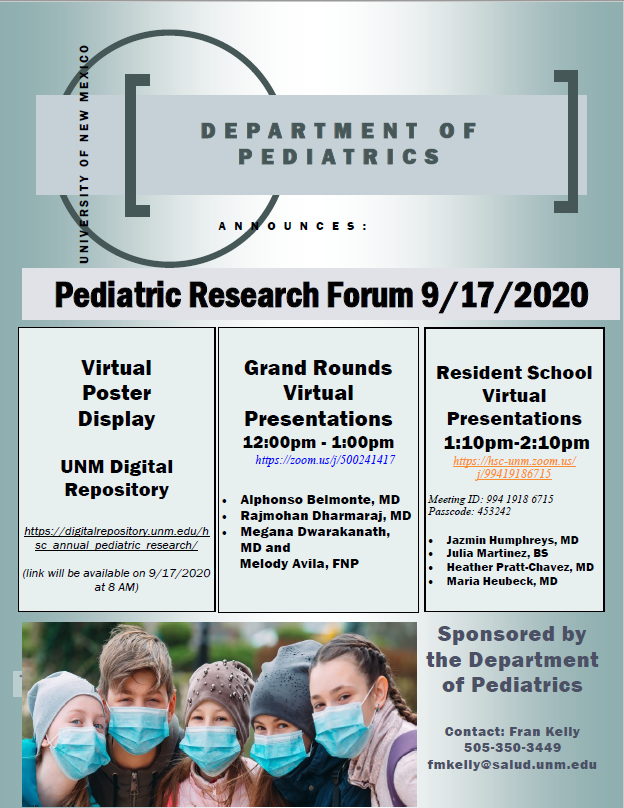Document Type
Poster
Publication Date
9-17-2020
Abstract
Background:
Childhood encephalitis causes long-term neurocognitive disability, which may lead to secondary disabilities such as poor academic achievement and social isolation. This is particularly problematic in resource limited, tropical countries, where the burden of vector-borne viral encephalitis is substantial, yet the resources for identifying the myriad of pathogens involved and characterizing the resulting neurocognitive sequelae are limited. To our knowledge, comprehensive assessments of neurocognitive function following tropical childhood encephalitis have not been performed. We hypothesize that the risk of neurocognitive sequelae is pathogen-specific, and that the use of portable, on-site metagenomic Next Generation Sequencing of CSF in Sri Lankan children with encephalitis will increase diagnostic yield. When coupled with comprehensive neurocognitive evaluations, a more nuanced understanding of pathogen-specific sequelae may emerge.
Methods:
We will utilize the portable Oxfore nanopore next generation sequencing device at 3 sites in Sri Lanka (Academic Medical Centers in Kandy, Colombo and Galle, 2000 pediatric beds total). CSF will be analyzed for each case of encephalitis, along with cell-based diagnostic platforms for auto-immune encephalitis. Each child will undergo serial neurocognitive evaluations with both the CANTAB (Cambridge Neuropsychological Test Automated Battery) and a novel neurocognitive assessment tool developed for use in Sri Lankan children. These neurocognitive assessments will be repeated in age and gender matched controls. Anticipated
Results:
We anticipate that this approach will provide a more nuanced understanding of tropical childhood encephalitis, help risk-stratify children following infection and provide evidence for targeted neurocognitive and neuropsychological therapy. Next Steps: We have 35 CSF isolates from Sri Lankan children with febrile encephalitis of unknown etiology which will be sequenced this Spring. A Sri-Lankan specific neurocognitive assessment tool has been developed and is being pilot-tested. This summer, pilot-testing using the CANTAB will be undertaken in a cohort of 20 Sri Lankan children with encephalitis and 130 otherwise healthy children.
Recommended Citation
Chow, Christal; Ashan Jayawickrama; Jithangi Wanigasinghe; Piyadasa Kodituwakku; Kurt Schwalm; Darrell Dinwiddie; John Phillips; and Walter Dehority. "Pathogen-Specific Neurocognitive Outcomes in Tropical Childhood Encephalitis." (2020). https://digitalrepository.unm.edu/hsc_2020_pediatric_research/18




Comments
Presented at the Annual Pediatric Research Forum Poster session. Contact Christal Chow CChow@salud.unm.edu for questions.